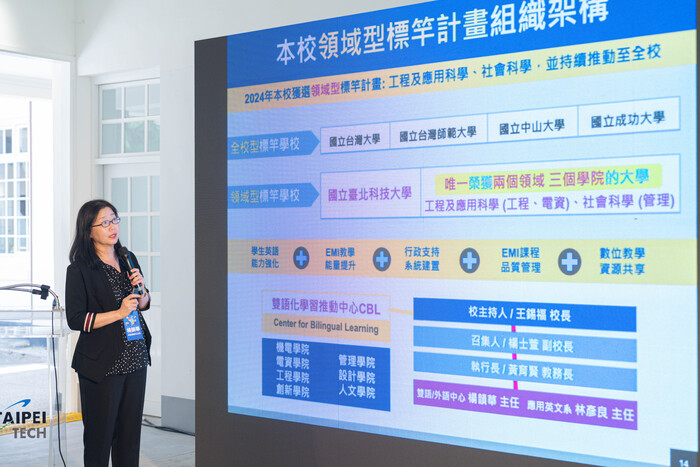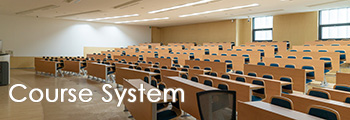Learning English Through Games? Taipei Tech Trains Next Generation of Bilingual Engineers

At Taipei Tech, English is more than a subject—it’s a bridge to global competence. Aligning with Taiwan’s bilingual education policy, the university delivers a diverse portfolio of EMI (English as a Medium of Instruction) and ESP (English for Specific Purposes) courses. This commitment has earned recognition from the Ministry of Education, naming Taipei Tech an EMI benchmark institution in engineering and management.
One standout example is Professor Chen Yen-sheng’s EMI course in high-frequency electronics. Known for its complexity, the subject could easily intimidate students, especially when taught in English. But Chen transforms the classroom into an interactive space, using tools like Kahoot, group discussion, and even ChatGPT to boost engagement and reduce students’ anxiety about learning the subject in English.
Chen’s approach reflects the understanding that EMI is not simply about translating existing lectures into English. In EMI, the subject and the language are being taught simultaneously, which means the teaching method must evolve. To support this dual goal, he invests as much as three hours each week designing every lesson, ensuring content delivery is comprehensible and interactive.
He begins each session with casual conversations in Mandarin to help students ease into the class. Then, he gradually introduces more English, reviewing key points from previous lessons before moving on to new material. Each three-hour session concludes with a quiz game that reinforces learning in a relaxed, collaborative way.
Taipei Tech’s bilingual strategy represents a broader shift in teaching philosophy—from traditional lectures to student-centered, activity-based learning. Chen’s early experience teaching EMI using scripted English lectures and pre-recorded Chinese videos proved discouraging. “Only five students showed up by the end of the semester,” he recalls. “I knew I had to change.” With support from Fulbright advisors, he redesigned his course to prioritize interaction, participation, and a more human classroom dynamic.
Meanwhile, throughout their first three years, Taipei Tech’s Bilingual Education Center offers ESP courses tailored to students’ disciplines, including Engineering & Technology, Computer Science and Electrical Engineering, Business and Management Studies, Mechanical and Manufacturing Engineering, Design, and Social Sciences. These courses prepare students to apply English in real-world, field-specific contexts. Teachers often co-create lessons with students, who contribute subject knowledge while instructors provide linguistic support.
Taipei Tech promotes its Co-teaching Program, which encourages collaboration between EMI subject instructors and English teachers. While the approach poses initial challenges, it has proven effective in creating richer, more supportive bilingual learning environments.
As Taiwan’s bilingual education efforts expand, Taipei Tech is setting the pace, training technically proficient engineers who are ready to connect with the world.






